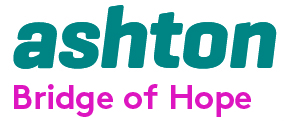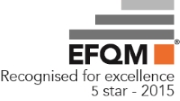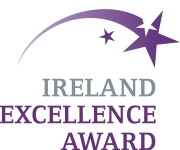Date: 19/08/2015
A leading African NGO working to record human rights violations has described a grassroots programme developed by a North Belfast community organisation in partnership with the Transitional Justice Institute (TJI) as an inspiration.
Jestina Mukoko, Director of the Zimbabwe Peace Project, was one of the participants of this year’s TJI summer school who came to visit Ashton Community Trust’s Bridge of Hope department in the New Lodge. The TJI summer school is one of the activities of the DFID funded Political Settlements Research Project (PSRP) and Jestina was participating in the summer school thanks to a PSRP scholarship.
The visit to Bridge of Hope was organised by the summer school as part of a programme of events on the theme of Gendering the Practices of Post-Conflict Resolution: Investigations, Reparations and Communal Repair.
“The Bridge of Hope project and the Toolkits that were eventually developed by the Transitional Justice Institute are an inspiration,” Jessica said.
The leading peace activist also said the Toolkits, recently translated into Arabic and Spanish, could work in her locality.
“I could see the Bridge of Hope toolkit helping Zimbabwean communities deal with their wounds and working towards transforming into survivors and also being able to eventually embrace those who perpetrated the violence,” she said.
During the summer school, delegates were given two sessions on the Grassroots Transitional Justice Programme by Eilish Rooney (TJI Senior Lecturer) and Irene Sherry, (Ashton Community Trust’s Head of Victims & Mental Health Services). The session in McSweeney Centre involved past participants Eileen Weir (Shankill Women’s Centre), and Eilis O’Connor, (a former republican ex prisoner from North Belfast) both speaking candidly about their experiences of life, gender and conflict.
“I was impressed by the input of the wide range of experts who were on hand and who spoke authoritatively in their various fields. In particular, the experience of Bridge of Hope organisation was hugely relevant to my work,” Jessica said.
“The interaction with women who were on opposite sides of the divide and who experienced violence was not only humbling but a learning that no matter how big the conflict is the actors in it can with time and the right approach actually embrace.
“The experience of how some families’ endured prison seemed to me a heart breaking one but at the same time an indication that dedication and commitment have no other alternative. The story told by Eilish (Eilis O’Connor) about a woman who witnessed her mother being arrested as a teenager, had a brother sentenced to 10 years in prison and to experience prison herself and the inhuman treatment that she endured just made me realise the strength that women have and how they become resolute in their goals.”
ENDS
Media contact: Áine Magee at Bridge of Hope ![]() 028 9032 2289, email aine.magee@ashtoncentre.com
028 9032 2289, email aine.magee@ashtoncentre.com
For background information on the Transitional Justice Grassroots Programme, bespoke training from Transitional Justice Institute, Ulster University & Ashton Community Trust through its Bridge of Hope Department log onto www.bridgeofhope.flywheelsites.com and www.ulster.ac.uk/transitionaljustice
Read Jestina’s blog in full here:http://www.politicalsettlements.org/2015/08/14/jestinamukokoblog/






